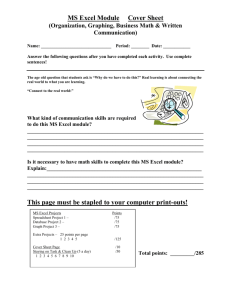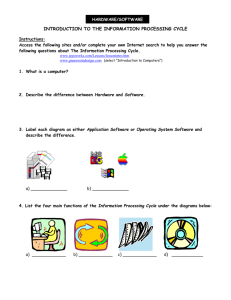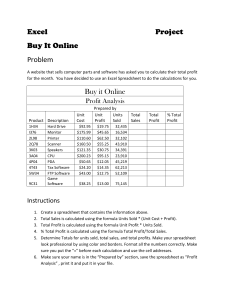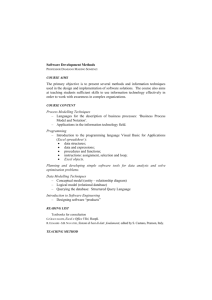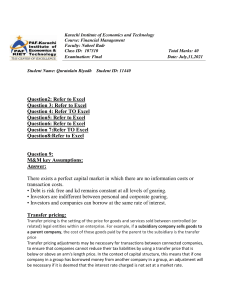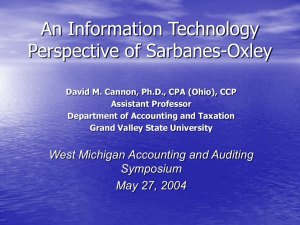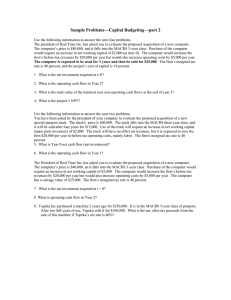WHAT'S NEW to the SECOND EDITION of FUNDAMENTALS OF
advertisement
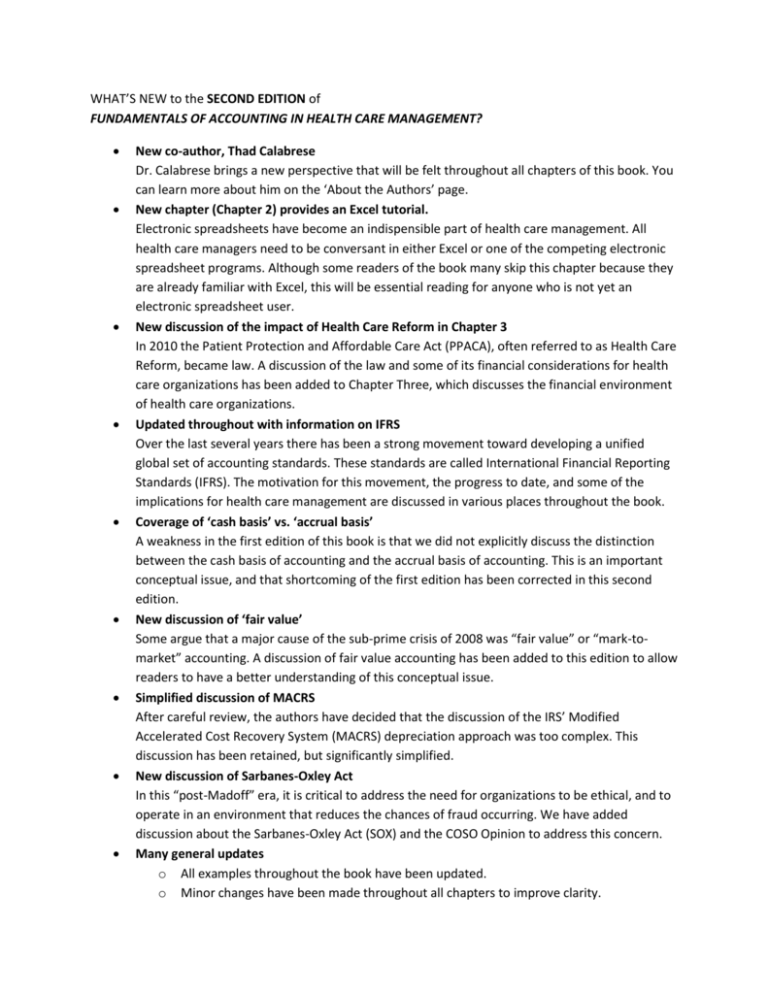
WHAT’S NEW to the SECOND EDITION of FUNDAMENTALS OF ACCOUNTING IN HEALTH CARE MANAGEMENT? New co-author, Thad Calabrese Dr. Calabrese brings a new perspective that will be felt throughout all chapters of this book. You can learn more about him on the ‘About the Authors’ page. New chapter (Chapter 2) provides an Excel tutorial. Electronic spreadsheets have become an indispensible part of health care management. All health care managers need to be conversant in either Excel or one of the competing electronic spreadsheet programs. Although some readers of the book many skip this chapter because they are already familiar with Excel, this will be essential reading for anyone who is not yet an electronic spreadsheet user. New discussion of the impact of Health Care Reform in Chapter 3 In 2010 the Patient Protection and Affordable Care Act (PPACA), often referred to as Health Care Reform, became law. A discussion of the law and some of its financial considerations for health care organizations has been added to Chapter Three, which discusses the financial environment of health care organizations. Updated throughout with information on IFRS Over the last several years there has been a strong movement toward developing a unified global set of accounting standards. These standards are called International Financial Reporting Standards (IFRS). The motivation for this movement, the progress to date, and some of the implications for health care management are discussed in various places throughout the book. Coverage of ‘cash basis’ vs. ‘accrual basis’ A weakness in the first edition of this book is that we did not explicitly discuss the distinction between the cash basis of accounting and the accrual basis of accounting. This is an important conceptual issue, and that shortcoming of the first edition has been corrected in this second edition. New discussion of ‘fair value’ Some argue that a major cause of the sub-prime crisis of 2008 was “fair value” or “mark-tomarket” accounting. A discussion of fair value accounting has been added to this edition to allow readers to have a better understanding of this conceptual issue. Simplified discussion of MACRS After careful review, the authors have decided that the discussion of the IRS’ Modified Accelerated Cost Recovery System (MACRS) depreciation approach was too complex. This discussion has been retained, but significantly simplified. New discussion of Sarbanes-Oxley Act In this “post-Madoff” era, it is critical to address the need for organizations to be ethical, and to operate in an environment that reduces the chances of fraud occurring. We have added discussion about the Sarbanes-Oxley Act (SOX) and the COSO Opinion to address this concern. Many general updates o All examples throughout the book have been updated. o Minor changes have been made throughout all chapters to improve clarity. o o o The ‘Test Your Knowledge’ section at the end of each chapter has been substantially expanded with the addition of many new discussion questions and homework problems. All Excel templates have been updated. All teaching resources have all been updated and expanded.
